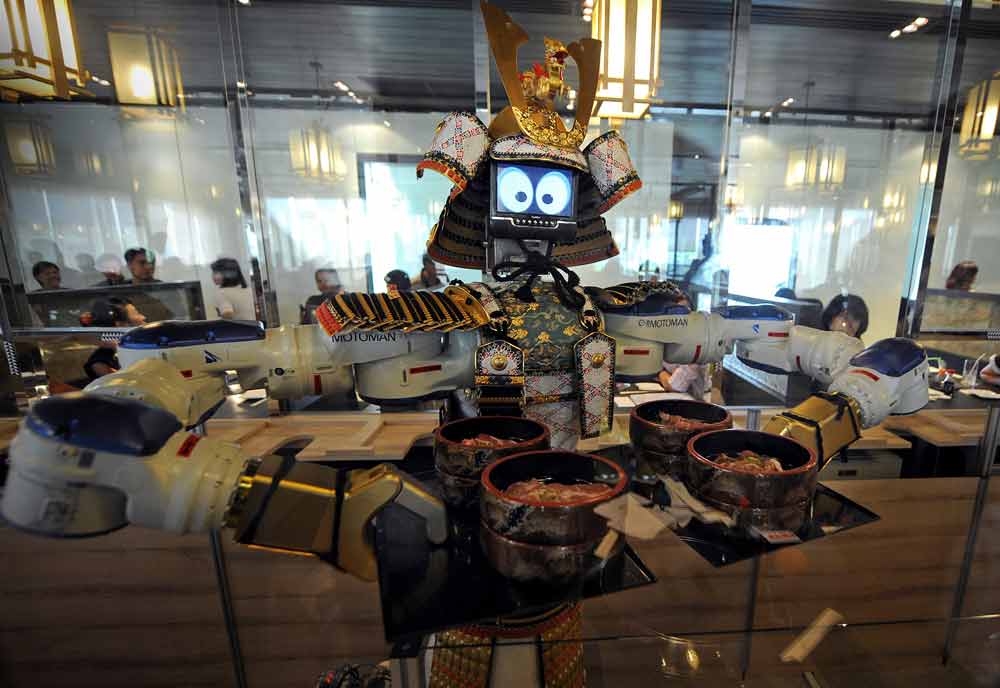Abu Dhabi’s PAL Technology claims it has already attracted interest for its new, all-purpose service robot, which it is targeting at a number of sectors, including the hotel industry.
The company has reportedly spent more than US $50 million developing Reem the robot at its base in Barcelona, as well as a range of prototypes.
"It can work in a hospital, in a hotel, in a museum or an airport," Sheraz Siddiqui, the project director for PAL Technology, which owns the robot's developer PAL Robotics, told Abu Dhabi newspaper The National.
The latest model released last year is the first to be made commercially available and was piloted by Abu Dhabi National Exhibition Company as a guide for visitors at the International Defence Exhibition.
The current Reem model features a touch screen on which visitors to trade fairs or shopping centres can select their destination before being led there by the robot.
A camera in the back of its head checks whether or not the person is following. It can also communicate in dozens of different languages.
"We don't see robots as replacements for humans," said Jan Jonckheere, the business development manager of PAL Robotics. "But these robots can allow a hotel or exhibitor to do things which they can't currently do."
The price of the robot has not been made public but Mr Siddiqui said it would be "several thousand dollars". The company hopes to reduce the price to make it more competitive.
Meanwhile, at the research and development facility in Spain, experts are customising a version of Reem that could carry objects in its hands.
A key challenge lies in getting the robot to recognise objects before calculating how best to pick them up, Jan Jonckheere, the business development manager of PAL Robotics, told the newspaper.
"Not all glasses look the same," Jonckheere said. "There are millions of different types of glasses and trays. The challenge with the programming is in helping the robot to recognise objects before calculating how to pick them up."
But he said a working model would be ready in a year.
Once ready, the next generation of Reem robots could have wider applications in the hotel industry in serving food and beverages to clients. They could also be used as hospital porters.
According to a report by the South Korea Ministry of Knowledge and Economy last January, by 2016 as much as 85% of global robot sales will come from service robots.

| Advertisement |









 Search our database of more than 2,700 industry companies
Search our database of more than 2,700 industry companies









